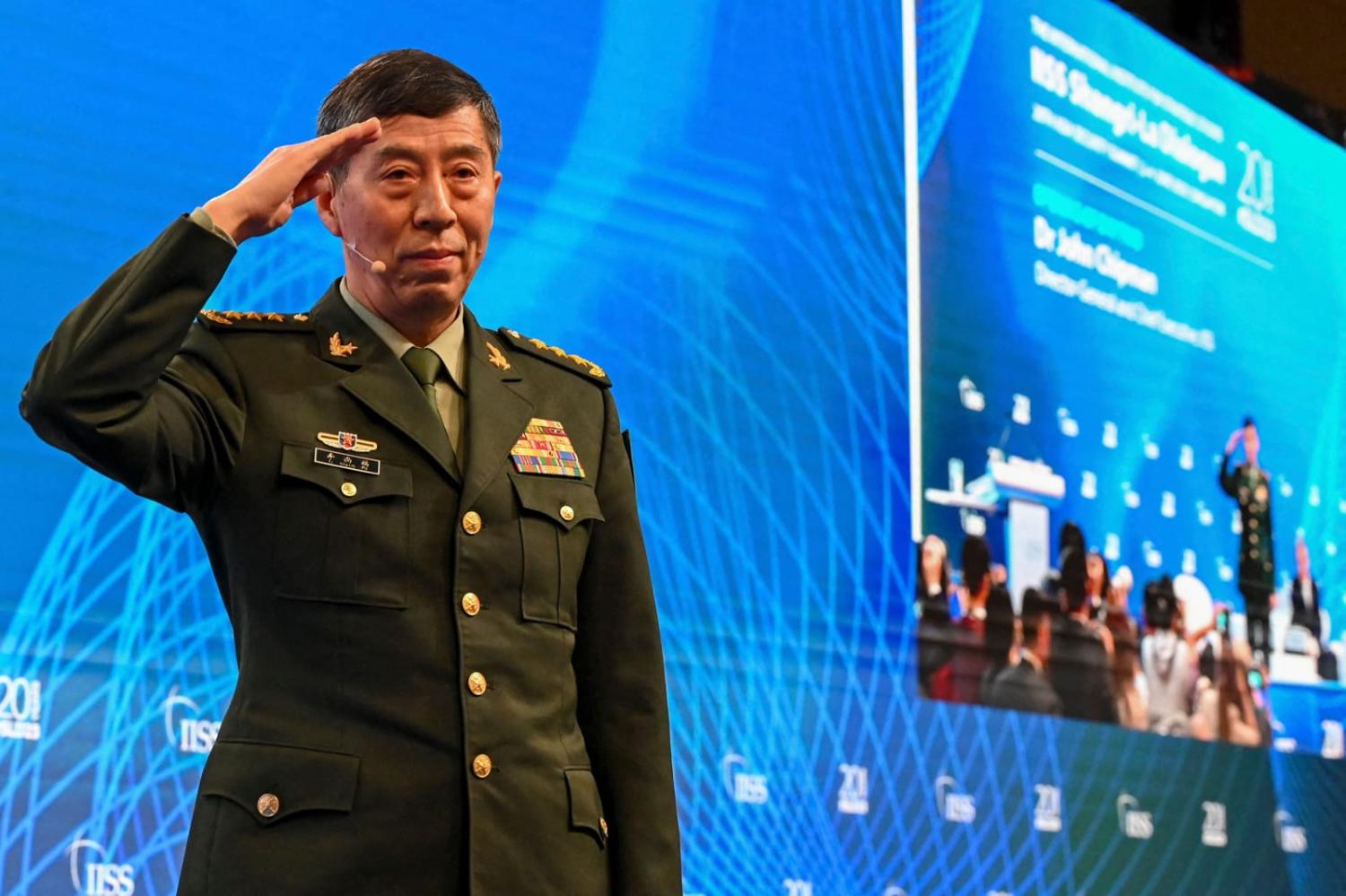The speech by China’s Defence Minister Li Shangfu’s at the latest Shangri-La Dialogue has caused a further stir in regional relations, with commentaries in China hailing Li for pushing back against Washington’s “interference”, while to many in the West, his words reflected Beijing’s growing belligerence.
But it was the missed opportunity of any high-level military-to-military dialogue between China and the United States on the sidelines that marked the bleakest moment for this conference. Li did not go beyond a quick handshake with his American counterpart Lloyd Austin. Nor was there a meeting with Canada’s Defence Minister Anita Anand. The reason was clear, after American and Canadian warships transiting through the Taiwan Strait just a day before the talks openly blamed a Chinese warship for an “unsafe maritime interaction”. The incident not only aroused nationalist anger in China about the “hyped up” version of the event presented by the West, but also featured in Li’s speech, with the minister noting that the Chinese military would “not hesitate for a second” in defending “national sovereignty”.
Austin, for his part, reiterated support for the One China Policy in remarks at Shangri-La, but did not mince his words in criticising Beijing’s “more coercive and aggressive” stance. Clashes between China and other claimant nations in the South China Sea continue to be serious. Relations with the United States also remain tense following the cancellation of a visit to Beijing by US Secretary of State Antony Blinken owing to the spy balloon saga. Washington, Austin noted, has not only invested in alliances in the region but also intends to step up its military presence. And Li continues to be on Washington’s sanction list despite his appointment as the Defence Minister.
China’s President Xi Jinping has long been wary of American military presence in the region, in 2014 calling for “Asian people to uphold Asia’s security”. This year, for the first time, Xi openly lambasted the United States for “containing, encircling and suppressing China”. Talk of economic “de-risking”, as took place at the G7 last month, has further exacerbated such insecurities.
Over the past decade, China has launched several international initiatives such as the Global Security Initiative, Global Development Initiative and most recently, the Global Civilisation Initiative to directly challenge the Western modus operandi for regional security. These efforts, as well as China’s vision of a “Community for Shared Future for the Asia Pacific”, will increasingly rub up against existing mechanisms, illustrated by Li’s vigorous advocacy for the Global Security Initiative during his Shangri-La speech. But while perceptions of Washington’s declining presence in Southeast Asia may act in favour of China, Beijing’s fierce assertion of sovereign rights in the South China Sea creates a major aversion.
Even if it was meant as a warning to the other side, it was a positive sign that both the United States and China both recognised that the outbreak of a conflict would be “unbearable”. China certainly needs to tone down its aggression and prerequisites for dialogue, while the United States must equally contribute to meeting Beijing halfway. Participation at the recent Komodo Naval joint exercise in Indonesia shows that it is possible for US and Chinese navies to come together even as bilateral ties remain tense. Working to develop common ground in areas such as climate change can also help to foster trust.
So, while the Shangri-La Dialogue this year turned out to be a lost opportunity, it at least served as a reminder of the importance of bringing the United States and China back to the table.

